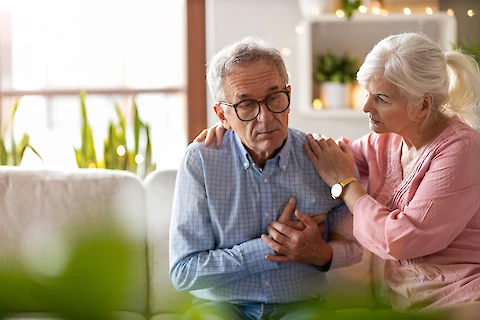
If your loved one just had a heart attack, it's logical to wonder what comes next. The immediate effects of a heart attack can be serious, but it's also important to consider the long-term implications, especially for seniors. In this article, we'll outline the short-term and long-term effects of having a heart attack, how to care for someone after they have one, and lifestyle changes that need to be made in order to avoid further complications.
Effects of a Heart Attack
When an elderly relative has a heart attack, their body is typically deprived of oxygen due to a blocked artery. This can cause serious damage to the heart muscle and other organs. However, heart attacks cause both physical and emotional changes, especially for seniors. Having a heart attack is traumatic, and in the aftermath, your loved one may feel depressed, guilty, or anxious. In the long term, heart attacks can cause reduced stamina, mobility issues, and fatigue.
Physically, people who have had a heart attack are at increased risk for a second event. Proactive lifestyle changes, being alert for warning signs, and adhering to the recovery instructions from the hospital will all help decrease the risk of future heart events.
After having a heart attack, there is an increased risk of suffering another one in the future. In order to reduce this risk, your elderly relative's doctor needs to prescribe them relevant medication such as aspirin or statins and suggest lifestyle changes such as quitting smoking, reducing salt intake, and consuming more fruits and vegetables. There's also often incurring financial strain from the medical treatment, which means family members or friends should put support into place if possible.
Medical Care After a Heart Attack
Medical care after a heart attack will involve regular check-ups and monitoring of medications in order to ensure that treatment is tailored according to individual needs. Tests may need to be conducted, and your loved one's doctor will likely make lifestyle recommendations as part of the recovery plan. This process will start while in the hospital, but recovery will last weeks and months after coming home.
Seniors who have had a heart attack may need further assistance at home, as well as moral and emotional support. Providing a sense of familiarity and safety, offering help with routines, and encouraging doctor-recommended lifestyle changes are all ways to help your loved one recover.
Lifestyle Changes
After a heart attack, your loved one should follow the "ABCs" laid out by the American Heart Association. Avoid tobacco and stop smoking (if they smoked). Be more active, with regular, moderate activity approved by a doctor. Choose good nutrition by avoiding excess salt and saturated fats and eating vegetables, fruits, nuts, and legumes. Supporting your senior by encouraging their activity and improved diet will go a long way toward helping their recovery.
Senior Helpers Offers Personalized Care Services
Heart attacks are traumatic and serious, and the aftermath can be a bumpy road. Seeking proper medical care during recovery and having support with lifestyle changes are key for seniors who have had a recent heart attack. If your loved one needs additional help around the house or adapting to lifestyle changes, contact Senior Helpers Rockford today. Our compassionate caregivers can help with grocery shopping, meal preparation, and transportation in and around the Rockford, Belvidere, Freeport, Loves Park, Machesney Park, Winnebago County, and Stephenson County areas.